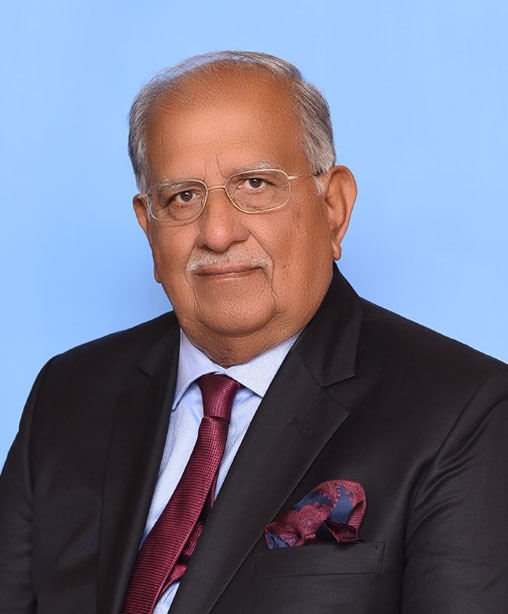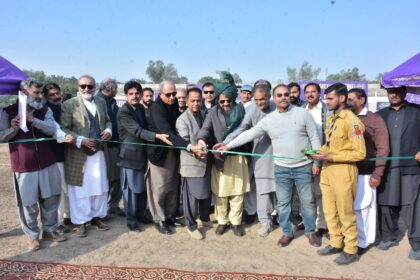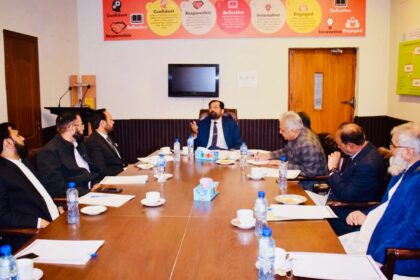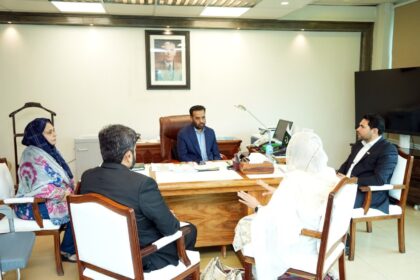**Minister Riaz Hussain Calls for Unified National Action on Renewable Energy and Climate Resilience in Pakistan**
Federal Minister for Housing and Works, Mian Riaz Hussain, delivered a compelling address at the Pakistan Alternative Energy Association’s conference, urging a nationwide commitment to renewable energy and climate-resilient practices. He framed the transition to clean energy as both a critical necessity for Pakistan’s future and a moral obligation rooted in Islamic wisdom, calling on all sectors of society to unite in advancing sustainable solutions.
In his opening remarks, Minister Hussain congratulated the organizers and participants for focusing attention on alternative energy and climate resilience, calling these issues essential in an era of global environmental uncertainty. He warned that continued reliance on fossil fuels imperils Pakistan’s development and poses grave risks to future generations, positioning the rapid adoption of new technologies as an urgent national imperative.
Emphasizing Pakistan’s vulnerability to climate change, the minister highlighted that the country is among the ten nations most exposed to environmental hazards, including floods, droughts, temperature extremes, and unpredictable weather. He underscored the transformative potential of renewable energy sources—such as solar, wind, hydropower, geothermal, and bioenergy—not only to reduce emissions and enhance energy security but also to unlock significant economic opportunities.
Minister Hussain drew attention to Pakistan’s vast, underutilized renewable resources, noting the country possesses over 2.9 million megawatts of solar potential and about 50,000 megawatts of wind energy, particularly in the coastal regions of Sindh and Balochistan. He reiterated the government’s dedication to expanding clean energy solutions as outlined in the Alternative and Renewable Energy Policy 2019, framing this effort as a foundational pillar in Pakistan’s climate adaptation strategy.
The minister called for comprehensive collaboration among government bodies, the private sector, civil society, and academia to achieve sustainable energy goals. He praised the conference for fostering expertise, innovation, and dialogue, aligning efforts with the United Nations Sustainable Development Goals and establishing a venue for policy advocacy and technology sharing.
Shifting to Urdu during his address, Minister Hussain infused the discussion with spiritual and ethical context. Quoting Nahj al-Balagha, a collection of sermons attributed to Imam Ali, he reflected on prophetic insights concerning environmental imbalance, widespread disease, and a loss of societal connection. He associated these ancient warnings with contemporary challenges, advocating for a reconnection to Islamic teachings and sustainable lifestyles—emphasizing the use of natural materials, avoidance of processed foods, and commitment to clean living as both spiritual guidance and practical environmental remedies.
He also critiqued the inconsistency of certain developed nations that promote human rights and environmental reforms abroad while remaining leading contributors to global pollution and conflict. Minister Hussain encouraged Pakistanis to draw on both faith and scientific knowledge in addressing the climate crisis, advocating for further research into Islamic teachings that guide humanity’s relationship with nature.
The conference ultimately served as a platform for integrating modern technological solutions with cultural and ethical imperatives. Minister Riaz Hussain’s address resonated as a call to action, urging Pakistan toward a climate-conscious and spiritually grounded national transformation.











